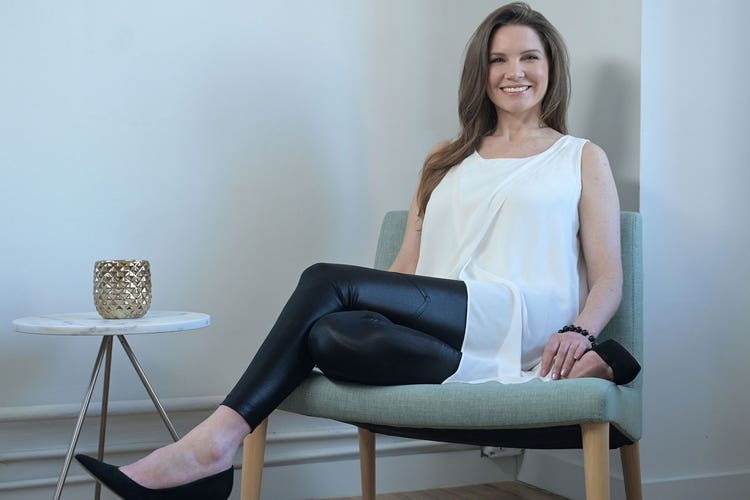Ariel Kiley: Self Worth Is Your Most Important Investment

We exercise. We eat well. We practice mindfulness. We run all the major wellness bases. But many of us miss an important piece to the healthy lifestyle puzzle: financial fitness. While that term may elicit an eye roll or even a groan, taking control of our cash and credit allows us to make confident decisions. And there’s nothing healthier—or sexier—than knowing what we want and fearlessly going after it.
We sat down with Ariel Kiley—yoga teacher, transformational guide and expert on conscious money practices—to talk about how a secure relationship with your finances is a sound investment in your own self-worth.
Money has value beyond its value

Before Kiley became woke to her wallet, she was busting her buns to get money and then carelessly throwing it away, often on items she didn’t even want but purchased because of social pressure. She recognized that there was a gap between the hard work of making money and the easy task of spending money. “ If you’re not taking care of your money, then you’re not actually respecting the work that you’re doing,” Kiley explains. She points out that we essentially diminish our spiritual worth when we disregard our monetary worth.
Be the boss

For Kiley, and many of her clients, conscious budgeting was an act of self-realization. Once she tracked and budgeted, she was able to connect her earnings to her spending, which gave her a sense of agency over not just her finances but also the overall narrative of her life: “ I know how much money I need to survive each month, and I have a sense of confidence that A) I can take care of myself and B) I can plan my money in order to make the next thing I really want to happen, happen.”
Track and trim

Kiley recommends writing down every single dollar you spend over the course of a month to see where your energy—in the form of money—is going. Then, she says to look at each item and ask: Does this choice align with my essential values? While some may align, others purchases were likely made out of convenience or lack of preparation.
“The extra stuff that’s not nourishing you, that’s actually draining your bank account, is probably draining your time and energy, also,” Kiley says. She advises her clients to make cuts and then carry cash: “When you feel cash leaving your hands, it registers in pain centers in your brain.” The swipe of a credit card is far less tangible.
Transform fear into action

When our money is unmanaged, or mismanaged, we’re anxious and likely operating from our primitive survival centers, which are largely reactive. When we take control of our financial security, it gives our nervous system a “deep sense of safety,” Kiley explains. Once no longer at the mercy of survival instincts, we can use our prefrontal cortex to make a choice. Kiley believes that this confidence allows us to be more empathetic, brave and creative in what we offer to the world.
Video credit: Alexandr Ivanets, Stocksy
Photo credits: Mark Kuroda, kurodastudios.com; dobok, Thinkstock; dolgachov, Thinkstock; rawpixel, Unsplash
Hair and make-up: Ava Roston